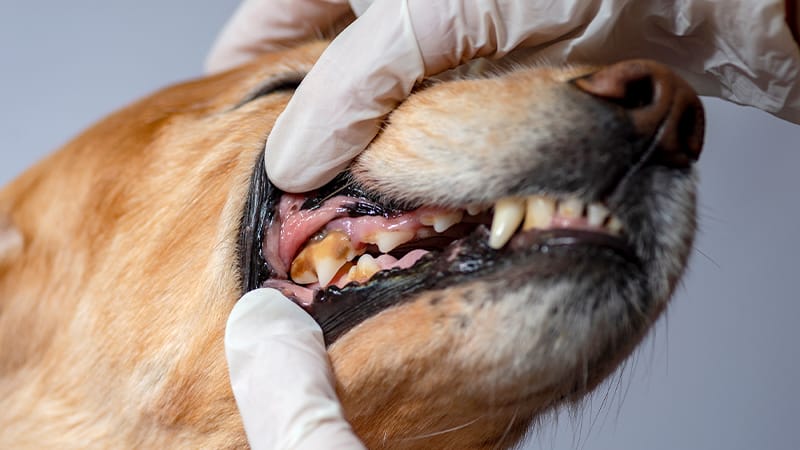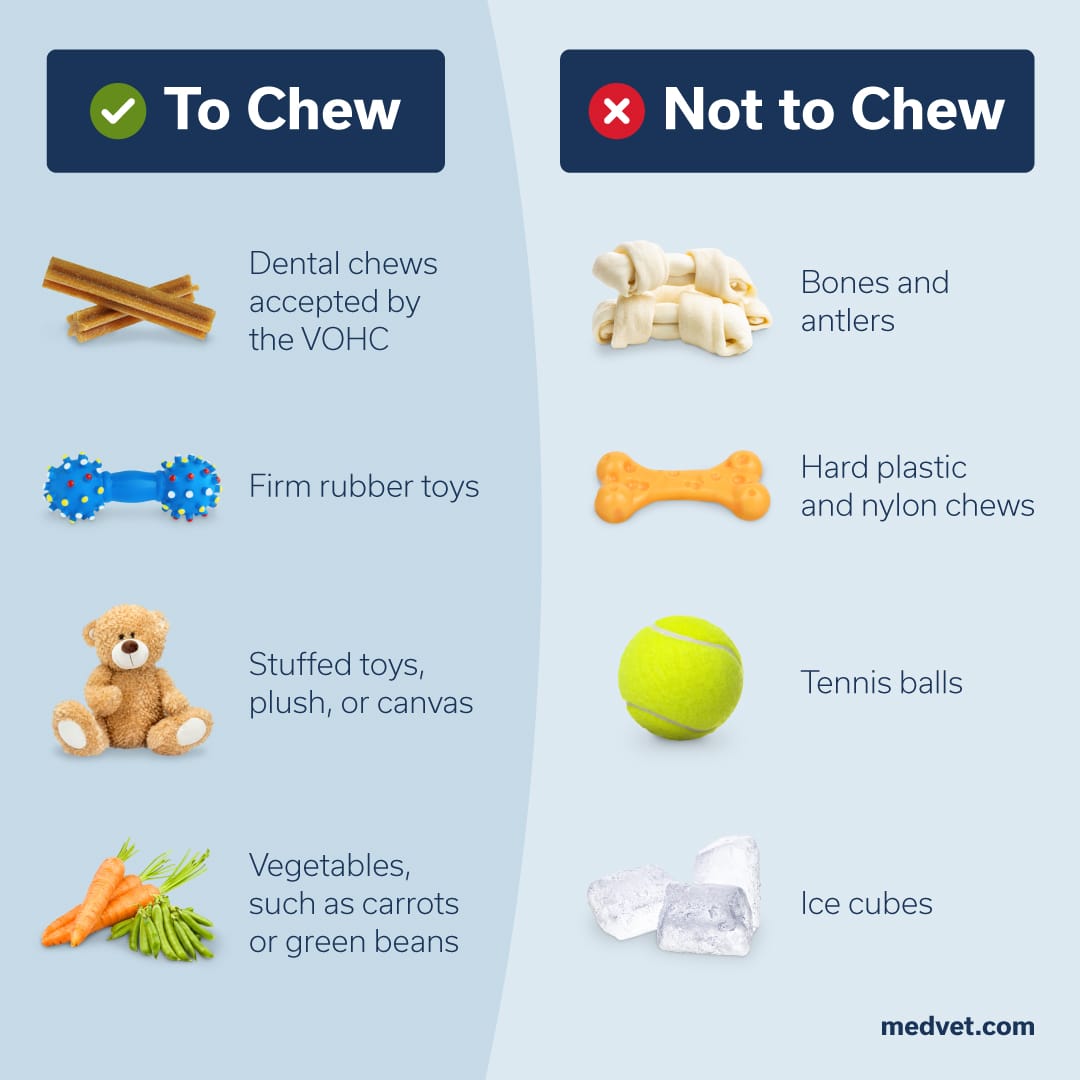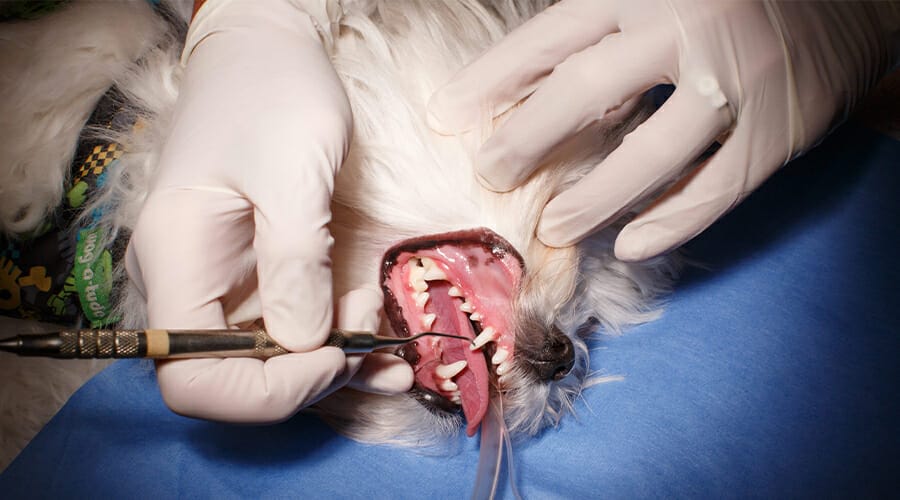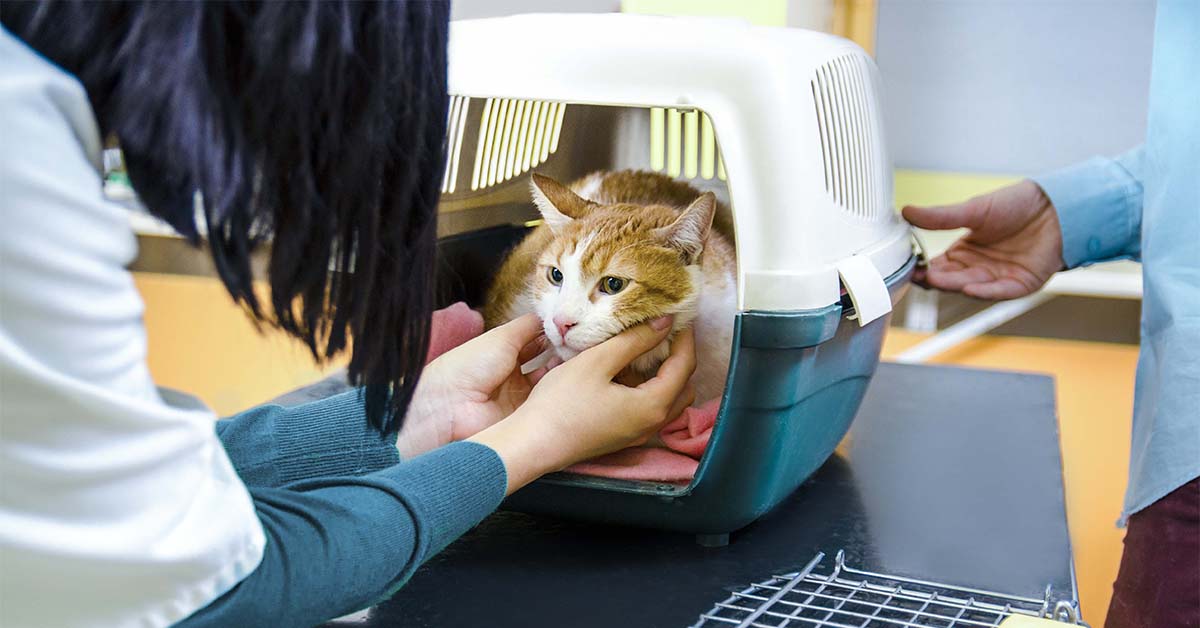Identifying Dental Disease in Your Dog or Cat and Maximizing Their Dental Health
Recognize the signs of dental disease and help your pet have a healthy mouth, teeth, and gums to improve their overall wellbeing.
Maintaining good dental health is essential for the overall wellbeing of your dog or cat. Dental disease, also known as periodontal disease, can cause pain, discomfort, and even lead to more serious health issues. By recognizing the signs of dental disease and taking proactive steps to optimize your pet’s dental health, you can ensure a happier and healthier life for your pet.
Why is Dental Health Important for Cats and Dogs?
Pets require regular dental care to maintain good oral health. This includes daily toothbrushing, professional dental cleanings with dental x-rays and routine check-ups with your family veterinarian.
According to AAHA (the American Animal Hospital Association), dental health is important for cats and dogs for several reasons:
- Oral hygiene: Just like humans, cats and dogs can develop plaque and tartar buildup on their teeth. This can lead to bad breath, tooth decay, and gum disease.
- Pain prevention: Dental problems can be painful for pets. Toothaches, gum infections, and oral diseases can cause discomfort and affect their ability to eat, play, and enjoy life.
- Prevention of systemic diseases: Poor dental health can have a negative impact on a pet’s overall health. Bacteria from dental infections can enter the bloodstream and potentially affect vital organs such as the heart, liver, and kidneys.
- Longer lifespan: By taking care of your pet’s dental health, you can contribute to their overall wellbeing and potentially extend their lifespan. Good oral hygiene can help prevent dental issues that may lead to more serious health problems down the line.
Signs of Dental Disease in Pets
Preventive measures, such as regular dental cleanings and examinations, can help prevent the development of dental diseases in pets. Even with diligent care, dental issues can arise and detecting them early can save pets from unnecessary pain and complications.
Common signs of dental disease in cats and dogs include:
- Bad breath: One of the most common signs of dental disease in pets is persistent bad breath. If your pet’s breath has a foul odor, it may indicate the presence of bacteria and plaque in their mouth.
- Tartar buildup: Look for brownish-gold tartar accumulation on your pet’s teeth, especially near the gumline. Tartar is a hardened form of plaque that can lead to gum inflammation and periodontal disease.
- Redness or bleeding gums: Gingivitis, an inflammation of the gums, is a common sign of dental disease. If you notice redness or bleeding along the gumline, it may indicate an underlying dental problem.
- Difficulty chewing: Pets with dental disease may experience pain or discomfort while chewing.
- Pawing at the mouth: Pets in pain often paw at their mouth or face.
- Loose or missing teeth: Dental disease can lead to tooth loss or looseness. If you notice any loose or missing teeth in your pet’s mouth, contact your veterinarian.
- Discolored teeth: Healthy teeth should be white or slightly yellow. Discolored teeth, such as brown or black spots, can indicate dental disease.
- Loss of appetite or weight loss: Pets with dental issues may have trouble eating, leading to a loss of appetite or weight loss.
- Swelling in the mouth: In advanced stages of dental disease, pets may develop swelling or lumps in their mouth. This can be a sign of infection or abscesses and requires immediate veterinary attention.
If you notice that your pet has any of these signs of dental disease, consult your family veterinarian. They may recommend that your pet see a veterinary dentist who has advanced training in dentistry and oral surgery.

Health Issues Associated with Dental Disease
Dental disease in pets can affect their overall health, including:
- Periodontal disease: Untreated dental disease can progress to periodontal disease, which affects the tissues surrounding the teeth. This condition can lead to abscesses, tooth loss, bone damage, and potentially infections elsewhere in the body.
- Pain and discomfort: Dental disease can cause chronic pain and discomfort for your pet. This can affect their quality of life and lead to behavioral changes.
- Difficulty eating and malnutrition: Pets with dental disease may have difficulty chewing and swallowing food, leading to malnutrition and weight loss.
- Oral tumors: Benign and malignant tumors can occur in the mouth which may require surgical intervention and can be life-threatening.
Regular Care for Your Pet’s Dental Health
Now that we’ve covered why dental health is important and the impact it can have on your pet’s overall health, here’s how you can ensure your pet’s dental health is the best it can be.
- Regular dental checkups and cleanings: Schedule regular dental check-ups with your family veterinarian. They often look at your pet’s oral health as part of their annual wellness exam. Your pet should have professional cleanings with anesthesia which are safe and the most effective way to provide a comprehensive exam and cleaning for your pet’s teeth.
- Dental hygiene at home: Establish a dental hygiene routine at home, including regular brushing of your pet’s teeth with pet-friendly toothpaste. Your veterinarian can guide you on the proper technique and recommend dental care products.
- Dental-friendly diet: Feed your pet a balanced diet that promotes dental health. Dental-specific diets and treats are available that help reduce plaque and tartar buildup. Discuss your pet’s needs with your veterinarian.
- Chew toys and dental treats: Provide your pet with appropriate chew toys and dental treats that help clean their teeth and gums. Avoid chews that can break or wear down your pet’s teeth, like bones, antlers, hard plastic/nylon chews, tennis balls, and ice cubes. The Veterinary Oral Health Council (VOC) has a list of dental products that have been shown to reduce plaque and tartar accumulation.
- Monitor oral health: Regularly inspect your pet’s mouth for signs of dental disease. If you notice any of the abnormalities discussed above, consult your veterinarian promptly.

Maintaining your pet’s dental health is imperative for their overall wellbeing. By understanding the importance of good dental health, being aware of the signs of dental disease, understanding the potential health issues it can indicate, and taking proactive steps to ensure dental hygiene, you can help your pet maintain a healthy mouth and a happy life.
Learn more about dentistry and oral surgery veterinary care.
FAQs
Contents


